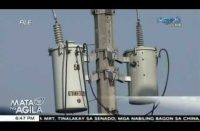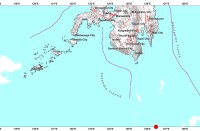
(Reuters) PEDERNALES/CANOA, Ecuador
Rescuers in Ecuador were losing hope of finding more survivors on Tuesday from an earthquake which killed more than 400 people and dealt a shattering blow to the South American OPEC nation’s already fragile economy.
Praying for miracles, distraught family members beseeched rescue teams to find missing loved ones as they used dogs, bare hands and excavators to hunt through debris of flattened homes, hotels and stores in the hardest-hit Pacific coastal region.
The death toll stood at 443 but was expected to rise.
The 7.8 magnitude quake, which struck late Saturday, also left 231 people missing and injured more than 4,000, according to latest government tallies on Tuesday morning.
Supervising rescue work in the disaster zone, Ecuador’s leftist President Rafael Correa said the quake inflicted between $2 billion and $3 billion of damage to the oil-dependent economy and could knock two to three percentage points off growth.
“Let’s not kid ourselves, it will be a long struggle … Reconstruction for years, billions (of dollars) in investment,” said a deeply moved Correa.
Growth in Ecuador’s small economy had already been forecast near zero this year due to plunging oil revenues.
The quake destroyed or damaged about 1,500 buildings, triggered mudslides and left 20,500 people sleeping in shelters, according to the government.
In Pedernales, a devastated rustic beach town, crowds gathered behind yellow tape to watch firemen and police sift through rubble overnight. The town’s soccer stadium served as a makeshift relief center and morgue.
“Find my brother! Please!” shouted Manuel, 17, throwing his arms to the sky by a corner store where his younger brother was working when the quake struck.
When an onlooker said recovering a body would at least give him the comfort of burying his sibling, he yelled: “Don’t say that!”
HUNT FOR CORPSES
But for Manuel and hundreds of other anxious Ecuadoreans missing their relatives, time was running out.
As of Tuesday, rescue efforts would become more of a search for corpses, Interior Minister Jose Serrano told Reuters.
In isolated villages and towns, survivors struggled without water, power or transport. Rescuers continued searching but the sickly stench of death told them what they were likely to find.
“There are bodies crushed in the wreckage and from the smell it’s obvious they are dead,” said Army Captain Marco Borja in the small tourist village of Canoa.
“Today we brought out between seven and eight bodies.”
The mayor of Muisne island, the locality closest to the epicenter of the quake, said all inhabitants had been evacuated to temporary shelters on the nearby mainland.
“We’ve lost everything we acquired with years of work,” he told local radio. “We need the government to relocate us.”
Nearly 400 rescue workers flew in from Latin American neighbors, along with 83 specialists from Switzerland and Spain.
The United States said it would dispatch a team of disaster experts, while Cuba was sending doctors.
To finance emergency efforts, some $600 million in credit from multilateral lenders was activated, the government said.
Ecuador also said Monday it had signed off on a $2 billion credit line from the China Development Bank to finance public investment. Ecuador and China, the country’s main financier since 2009, had been negotiating the credit before the quake.
(Reporting by Julia Symmes Cobb in Pedernales and Ana Isabel Martinez in Canoa; Additional reporting by Alexandra Valencia and Diego Ore in Quito; Writing by Alexandra Ulmer and Andrew Cawthorne; Editing by Jeffrey Benkoe and James Dalgleish)







